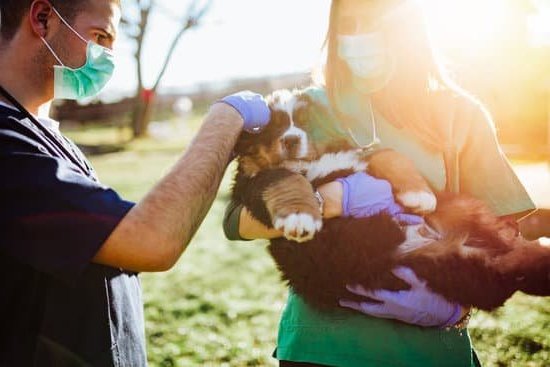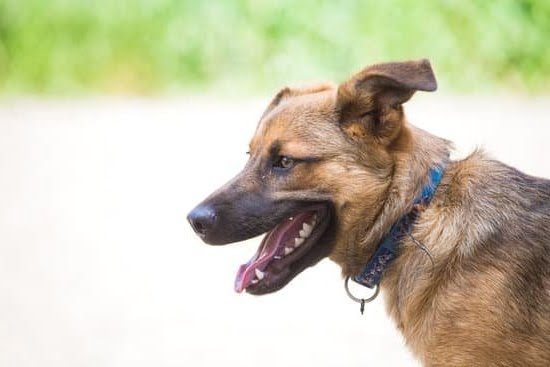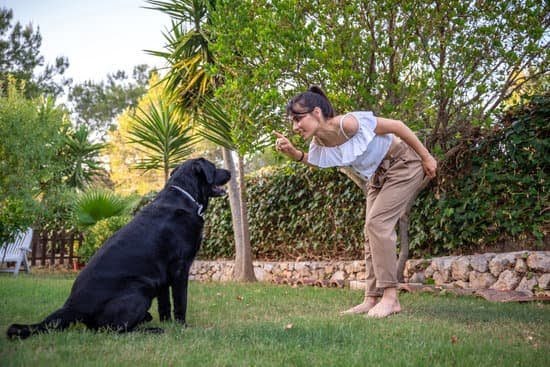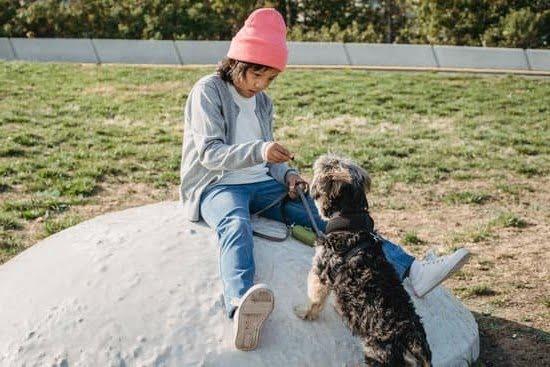Potty training a 5-year-old dog can be a challenging endeavor, but with patience and persistence, it is definitely possible. In this article, we will explore the importance of potty training for dogs’ overall well-being and the potential issues that may arise from a lack of training. We will also assess the feasibility of potty training an older dog and discuss factors such as previous training experience and health conditions that may affect the process.
Additionally, we will provide tips on establishing a consistent routine, utilizing positive reinforcement techniques, dealing with accidents and setbacks, and seeking professional help when necessary. So if you’re wondering whether you can potty train your 5-year-old dog, read on to discover valuable insights and practical advice.
Understanding the Importance of Potty Training for Dogs
Why Potty Training Is Important
Potty training is a crucial aspect of a dog’s overall well-being and should not be overlooked, regardless of the dog’s age. It is essential for dogs to learn proper elimination habits to maintain a clean and hygienic living environment for both themselves and their human companions. A well-trained dog who understands where and when to go potty can contribute to a harmonious home life and strengthen the bond between the dog and its owner.
Potential Issues Arising from Lack of Potty Training
When dogs are not properly potty trained, it can lead to numerous issues that can negatively impact their lives. One major concern is the prevalence of accidents in the house, which can cause discomfort for both the dog and its owner. Additionally, these accidents can result in damage to household items such as carpets, rugs, or furniture.
Furthermore, poor potty training may hinder the dog’s ability to socialize with others outside of its home environment, as it may engage in inappropriate elimination behaviors. This can create stress and embarrassment for both the owner and their four-legged friend.
Tips for Assessing Feasibility in Older Dogs
While potty training an older dog may present certain challenges, it is important to assess the feasibility based on individual factors. The success of potty training an older dog depends on various elements such as previous training experience or lack thereof. Dogs with little to no prior training may require more time and patience during the potty training process. On the other hand, dogs with some basic obedience skills will have a head start in learning new behaviors.
It is essential to consider any potential health issues that might affect a dog’s ability to be effectively trained. Some older dogs may suffer from physical limitations due to age-related conditions such as arthritis or bladder control problems, making them unable to hold their bladder for extended periods. Adapting the training methods to accommodate these limitations, such as providing more frequent potty breaks or using special equipment, can make the training process more manageable for older dogs.
Assessing the Feasibility of Potty Training an Older Dog
Potty training an older dog can be a challenging task, as they may have already developed long-standing habits and behaviors. However, with patience and persistence, it is possible to successfully potty train a 5-year-old dog. To assess the feasibility of potty training an older dog, there are several factors that need to be considered.
Firstly, it’s important to analyze the factors that may affect the success of potty training in older dogs. Some dogs may have health issues or physical limitations that make it difficult for them to control their bladder or bowel movements. It’s crucial to discuss these concerns with a veterinarian before starting the potty training process. Additionally, understanding the dog’s temperament, learning style, and previous experiences can also influence the training process.
The dog’s previous training or lack thereof may impact the potty training process as well. If the dog has received little or no formal training in the past, they may not understand basic commands or cues related to potty training. In this case, it might be helpful to start by reinforcing obedience commands and gradually introduce potty training techniques.
To accommodate age-related limitations during potty training, it’s important to consider potential health issues that might hinder progress. For example, older dogs may have stiff joints or muscle weakness that makes it more difficult for them to reach their designated outdoor area in time.
As such, adapting the training methods is necessary to cater to their specific needs. Providing adequate opportunities for bathroom breaks throughout the day and considering longer intervals between outings can help older dogs succeed in their potty training journey.
Overall, assessing these factors before embarking on a potty-training regimen will help determine if it is feasible to successfully train an older dog. While challenges may arise from previous habits and age-related limitations, with careful consideration and tailored approaches, owners can set their dogs up for success in their potty training journey.
Considering the Health and Age Factors
Exploring Potential Health Issues
When potty training a 5-year-old dog, it is crucial to take into consideration any potential health issues that might hinder the training process. Older dogs may have certain health conditions, such as arthritis or incontinence, which can affect their ability to control their bladder and bowel movements. These conditions can make it more challenging for them to hold their urine or feces for extended periods of time, resulting in accidents indoors.
If you suspect that your older dog has a health issue that is impacting their potty training progress, it is essential to consult with a veterinarian. A thorough examination can help identify any underlying medical conditions and determine the best course of action. The vet may recommend specific treatments or medications to manage the health issue and improve your dog’s ability to retain control over their bodily functions.
Adapting Training Methods for Age-Related Limitations
As dogs age, they may experience some physical limitations that can affect their ability to participate in regular potty training activities. For instance, an older dog with joint problems may find it difficult to navigate stairs or access certain areas where they are supposed to relieve themselves. In these cases, it’s important to adapt the training methods accordingly.
One way to accommodate age-related limitations is by providing easier access to appropriate potty areas. This could involve setting up ramps or steps leading to designated spots in the yard or using indoor pee pads if outdoor access presents challenges. Additionally, considering shorter and more frequent potty breaks can help older dogs who struggle with holding their bladder for long periods.
Taking Patience and Understanding into Account
Training an older dog requires patience and understanding due to potential age-related cognitive decline. While some senior dogs may still pick up on new concepts quickly, others might take longer to grasp the desired behaviors associated with potty training. It’s crucial to approach the training process with compassion and avoid getting frustrated or discouraged.
Providing clear and consistent cues, such as verbal commands or signals, can be helpful in reinforcing the desired potty behaviors. Being understanding of any accidents that may occur during the training process is also important. Instead of scolding or punishing the dog, focus on redirecting their attention to the correct behavior and rewarding them for successfully using the appropriate potty area.
Establishing a Consistent Routine
Establishing a consistent routine is crucial when it comes to potty training a 5-year-old dog. Dogs, especially older ones, thrive on routine and structure, making it easier for them to understand what is expected of them. By setting up a regular schedule for potty breaks, you can help your dog develop good habits and eliminate the likelihood of accidents in the house. Here are some tips on how to create a consistent routine for your dog:
- Designated potty area: Dedicate a specific spot in your yard as the designated potty area for your dog. This will help them associate that particular spot with elimination and reduce confusion.
- Regular potty breaks: Take your dog out for potty breaks at the same times each day, ideally every few hours. Be consistent with the timing to establish a predictable routine.
- Use environmental cues: Dogs often rely on environmental cues to determine when it’s time to go outside. For example, open the door leading to the designated potty area or use key words like “potty” or “outside” before taking them out. This will help reinforce the connection between these cues and going to their designated spot.
- Reward consistency: When your dog successfully goes potty in the designated area, praise them immediately and offer a treat as positive reinforcement. This will motivate them to continue following the established routine.
- Supervise closely: During the initial stages of potty training, it’s important to closely supervise your dog whenever they’re not confined in their designated space. This allows you to catch any accidents immediately and redirect them to their designated spot.
Creating and sticking to a consistent routine may require some patience and effort initially, but it can greatly expedite the potty training process for your 5-year-old dog. Remember that consistency is key – by providing clear expectations and reinforcing positive behavior consistently, you are laying the foundation for successful potty training.
Utilizing Positive Reinforcement Techniques
When it comes to potty training a 5-year-old dog, utilizing positive reinforcement techniques can be highly effective. Positive reinforcement is a training method that focuses on rewarding and encouraging desired behaviors. This approach not only helps with potty training but also strengthens the bond between the dog and their owner.
To effectively utilize positive reinforcement techniques, it is important to understand what motivates your dog. Every dog is different, so finding the right reward system for them is crucial. Some dogs may respond well to treats, while others prefer verbal praise or a favorite toy. Experiment with different rewards to see what motivates your dog the most.
One strategy for using positive reinforcement during potty training is to establish a designated bathroom area outside and encourage your dog to use it. Take them to this spot consistently after meals, naps, and playtime, as well as every few hours throughout the day. When they successfully eliminate in the designated area, immediately reward them with praise and a treat or other preferred reward. This will help reinforce that going potty in specific areas results in positive things happening.
Another technique for utilizing positive reinforcement is to provide immediate feedback when accidents do occur indoors. If you catch your dog in the act of eliminating inside the house, interrupt them calmly but firmly by saying “no” or using a vocal cue that indicates they should stop what they’re doing. Then quickly guide them outside to their designated bathroom area.
Once they finish eliminating outside, reward them with praise and treats as usual. It is important not to scold or punish your dog for accidents; instead, focus on redirecting them towards the desired behavior and reinforcing it positively.
By utilizing positive reinforcement techniques consistently throughout the potty training process, you can foster a positive learning environment for your older dog. Remember that patience and persistence are key when working with an older dog who may already have deeply ingrained habits or behaviors. With time and dedication, your dog can learn to be reliably potty trained, leading to a happier and healthier experience for both you and your furry friend.
Dealing with Accidents and Setbacks
Potty training an older dog can come with its fair share of accidents and setbacks. It’s important to remember that accidents are a normal part of the training process, and it’s essential not to get discouraged or frustrated when they occur. Instead, focus on how you handle these accidents and setbacks to help your dog learn and improve.
When accidents happen, it’s crucial not to scold or punish your dog. This can create fear or anxiety around potty training and make them hesitant to go in front of you. Instead, redirect their attention and calmly clean up the mess. Using an enzymatic cleaner will eliminate any residual odors that could encourage repeat accidents in the same spot.
To overcome setbacks, patience is key. Dogs may have good days and bad days when it comes to potty training, just like humans do when learning new skills. It’s important not to be too hard on yourself or your dog during this process. Stay consistent with the established routine and reinforce positive behaviors when they occur.
It can also be helpful to identify any triggers or patterns that may be causing setbacks in the potty training process. For example, if your dog consistently has accidents after certain activities or at specific times of the day, you can adjust their routine accordingly. Additionally, keep an eye out for signs that your dog needs to go potty such as pacing, sniffing around, or restlessness.
Overall, handling accidents and setbacks with patience and positive reinforcement is key during the potty training process for older dogs. Remember that each dog learns at their own pace, so maintaining a calm and consistent approach will ultimately lead to success.
| Tips for Dealing with Accidents |
|---|
| 1. Do not scold or punish your dog when accidents happen. |
| 2. Redirect their attention and calmly clean up the mess. |
| 3. Use an enzymatic cleaner to eliminate odors that could encourage repeat accidents. |
Seeking Professional Help
While potty training a 5-year-old dog can certainly be accomplished with the right techniques and approach, some owners may find it beneficial to seek professional help. Consulting with a professional dog trainer can provide valuable guidance and support throughout the training process.
There are certain situations in which enlisting professional help may be necessary. For instance, if you have already attempted potty training your older dog without success or if your dog has specific behavior issues that are hindering the training process, a professional trainer can provide expertise and personalized strategies to address these challenges.
Additionally, if you are short on time or feel overwhelmed by the training process, a professional trainer can offer the necessary resources and experience to expedite and streamline the training.
When choosing a professional dog trainer for potty training an older dog, it is important to consider several factors. Firstly, look for a trainer who specializes in working with adult dogs and has experience with potty training older dogs specifically. This will ensure that they understand the unique challenges associated with this age group and can tailor their approach accordingly. Additionally, research reviews and testimonials from previous clients to gauge their success rate in addressing similar issues.
Benefits of seeking professional help for potty training include faster and more effective results, as trainers have extensive knowledge of various training methods and techniques that have proven successful in similar cases. They can also provide ongoing support and guidance as needed, helping owners navigate through setbacks or obstacles that may arise during the training process.
Overall, while it is possible to potty train a 5-year-old dog on your own, seeking professional assistance can greatly increase your chances of success. By leveraging the expertise of trained professionals who understand the unique challenges of older dogs, owners can achieve their desired goals more efficiently and effectively.
| Pros | Cons |
|---|---|
| – Faster and more effective results | – Can be costly |
| – Personalized strategies to address specific behavior issues | – Not all trainers may have experience with potty training older dogs |
| – Ongoing support and guidance throughout the training process | – Reliance on external help instead of developing personal training skills |
Conclusion
In conclusion, potty training a 5-year-old dog is definitely possible, although it may come with some challenges. It is important to understand the importance of potty training for dogs in order to ensure their overall well-being and to prevent potential issues that may arise from a lack of training.
The feasibility of potty training an older dog depends on various factors, such as their previous training or lack thereof, as well as any potential health issues they may have.
When potty training an older dog, it is crucial to establish a consistent routine. This means creating a regular schedule for potty breaks and sticking to it. Dogs thrive on routine and structure, so this will help them understand when and where they are expected to go potty.
Additionally, utilizing positive reinforcement techniques can be highly effective in encouraging desired potty behaviors. By rewarding your dog with treats, praise, or playtime whenever they exhibit good bathroom habits, you can reinforce those behaviors and make the training process more enjoyable for both you and your furry friend.
Accidents and setbacks are bound to happen during the training process, but it is important not to get discouraged. Instead of getting angry or scolding your dog for accidents, focus on how you can handle them in a calm and positive manner. Clean up accidents promptly using an enzyme-based cleaner that eliminates odors completely. It’s also essential to maintain motivation throughout the process by setting realistic expectations and celebrating small successes along the way.
If you find yourself struggling or if your dog has specific challenges that require expert guidance, don’t hesitate to seek professional help from a qualified dog trainer. They can provide valuable insights tailored to your dog’s individual needs and offer solutions that will lead to success in the potty training journey.
Frequently Asked Questions
Is it too late to potty train a 5 year old dog?
It is generally not too late to potty train a 5-year-old dog, although it may require more time and effort compared to training a younger puppy. Older dogs can still learn new behaviors and adapt to changes in their routine.
Consistency, patience, and positive reinforcement are key when potty training an older dog. Establishing a regular schedule for bathroom breaks and closely monitoring your dog’s behavior can help reinforce the desired habits.
Can I still train my 5 year old dog?
Yes, you can still train your 5-year-old dog even though they are no longer a young puppy. Dogs are lifelong learners and have the ability to acquire new skills at any age.
However, older dogs may have established habits or behavioral patterns that need to be addressed in the training process. It is important to approach the training with patience, consistency, and positive reinforcement techniques tailored to your individual dog’s needs.
How do I train my 5 year old dog to pee and poop in the house?
It is essential to train your 5-year-old dog to eliminate outside rather than inside the house. Start by establishing a consistent routine for bathroom breaks; take your dog outside regularly, especially after meals or periods of activity. Supervise them closely when indoors and watch for signs that they need to eliminate such as circling or sniffing around.
Whenever you catch your dog in the act of peeing or pooping inside the house, calmly interrupt them and immediately take them outside to finish eliminating in the appropriate area while providing lots of praise and rewards when they do so successfully outside. Consistency, positive reinforcement, and patience will be instrumental in retraining your older dog on where they should eliminate.

Welcome to the blog! I am a professional dog trainer and have been working with dogs for many years. In this blog, I will be discussing various topics related to dog training, including tips, tricks, and advice. I hope you find this information helpful and informative. Thanks for reading!





